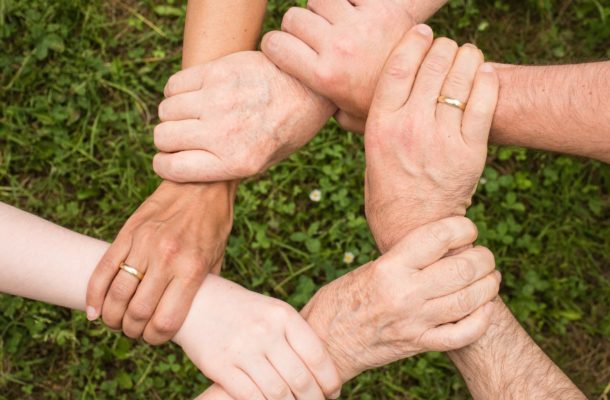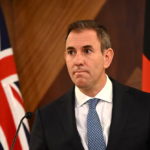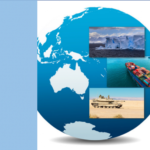Australia can drive change on the Human Rights Council

The 37th session of the Human Rights Council (HRC) commenced this week with Australia at the table for the first time, along with 14 others elected in October 2017.
Australia’s two-year-long campaign and election to a seat was not without criticism of the hypocrisy of its own domestic and offshore violations of human rights. However, Australia is not the only country to be given a seat despite failing to uphold the “highest standards in the promotion and protection of human rights” that is expected of the HRC’s members.
The HRC consists of 47 member states, elected by the members of the United Nations General Assembly by direct and secret ballot. It serves as the highest international body that deals with human rights issues around the globe.
Australia will sit alongside Saudi Arabia, the world’s most gender-segregated country; the Philippines, where Duterte’s extrajudicial ‘war on drugs’ campaign has killed thousands; China, which has the highest rate of capital punishment in the world; and Indonesia which has introduced a penal offence for LGBTI persons.
As Minister for Foreign Affairs Julie Bishop said, despite the “human rights records of a number of those who have been elected this time, it’s an opportunity for other countries to scrutinise their record and hold them to account.” As such, Australia can work with other states on the HRC to support the implementation of their own human rights obligations.
Australia’s commitment to a meaningful seat on the HRC will be demonstrated by the leadership role it assumes and the resolutions it shapes over the next three years. It will be interesting to see the actions taken towards fulfilling the five pillars of the Australian government’s campaign—gender equality, good governance, freedom of expression, strong human rights institutions, and indigenous rights—through the tools and scope offered by the HRC.
Gender equality
Australia’s international obligations under the Convention on the Elimination of All Forms of Discrimination against Women have seen gender equality and women’s empowerment placed at the centre of the country’s international aid program.
The government has set a target calling for at least 80 per cent of its development investments to address gender issues in their implementation. More recently, Australia has launched a new gender equality fund and the Australian Ambassador for Women and Girls, Dr Sharman Stone, promotes the rights of women in multilateral, regional and bilateral fora.
The HRC represents another platform for Australia to work with the international community to promote the rights of women and girls across the world. During discussions, Australia can appeal to the interests of other governments by arguing that investing in women and girls aids economic growth and development.
Good governance
Good governance, the rule of law and strong transparent institutions are the foundations of a society that promotes and protects human rights, which means that this ‘pillar’ is dependent on achieving the following three goals.
Freedom of expression
Freedom of expression is core to the United Nations’ values and a fundamental tenet of democracy. It ensures a culture of accountability and underpins good governance and transparent institutions.
In societies where free media institutions are weak, the governing elite is able to manipulate the public by skewing political discourse. When representative and media institutions are developed, governmental policy can be scrutinised by both the public and experts who have professional incentives to objectively evaluate policy.
Australia places an emphasis on protecting freedom of expression both domestically and internationally. On HRC resolutions in the past, Australia has promoted the safety of journalists, human rights defenders and freedom of civil society organisations. It has also supported the development of a strong, professional and sustainable media sector in partner countries in the Indo-Pacific region.
It is unlikely that those who penalise freedom of expression domestically will appeal for change internationally. Australia is one of few countries on the HRC that protects its fourth estate. It can hence be at the forefront of protecting the freedom of expression by standing up for the safety of journalists and dissenters.
Strong national human rights institutions
Australia advocates for the universal abolition of slavery and the death penalty. It is also committed to supporting the rights of people with disabilities and combating homophobic attitudes. Australia’s representatives on the HRC need to recognise that without the protection of individual liberties and constraints on government through the separation of powers, these fundamental human rights cannot be protected.
Where the rule of law is not practised, abuses of authority are commonplace. The checks and balances in a liberal democracy through robust civil society organisations play a crucial role in advancing human rights.
In the UN Security Council and at the General Assembly, Australia has repeatedly underlined the importance of building effective measures to provide appropriate preventive and accountability mechanisms. However, it’s important to recognise that such rhetoric can fall flat when attempting to translate it into tangible change.
Take criminal reform of the justice system and the abolition of the death penalty as one such process. This alone would require an independent judiciary, prosecutors, defence lawyers paid for by the state and appropriate prison infrastructure to name a few. The cost of creating and maintaining these systems would overwhelm poorer countries.
With Australia on the Human Rights Council, the country can now take its first steps in promoting strong national institutions by attempting to make states comply with the minimum criteria in the Paris Principles for National Human Rights Institutions. An important part of promoting strong national human rights institutions is developing constitutionalism. This is also of importance for advancing the human rights of indigenous peoples as it avoids the tyranny of the majority and protecting the rights of minorities.
The rights of indigenous peoples
The final pillar is that of advancing the rights of indigenous peoples. Australia plays an active role in the UN system on indigenous issues. Indeed, Australia is the fifth largest contributor to the UN Voluntary Trust Fund for Indigenous Populations and promotes recognition that engagement with indigenous leaders in UN bodies is paramount.
Australia can take such initiatives to the HRC. The representative can urge other countries to harness the knowledge and expertise of Indigenous peoples in the design and delivery of aid programs and institutional mechanisms.
Bishop said that Australia’s three-year term on the HRC will “provide a unique Indo-Pacific perspective”, where Australia will “work closely with other countries and civil society to protect and advance human rights” and promote “fundamental human rights and freedoms”.
Australia can foster meaningful change as part of the Human Rights Council. Time will tell how successful it can be.
This article was first published by the Australian Institute of Iternational Affairs.

Apoorva Kolluru is the Editor of ‘Australian Outlook’ at the Australian Institute of International Affairs. She previously worked as a research analyst for Amnesty International in New Zealand.














